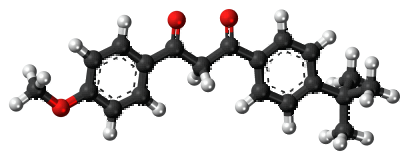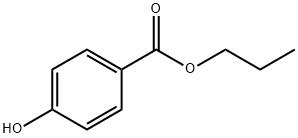Propylparaben in Skincare
Nov 29,2022
Propylparaben is a paraben, which is a group of controversial preservatives that also includes butylparaben, isobutylparaben, methylparaben, and ethylparaben.
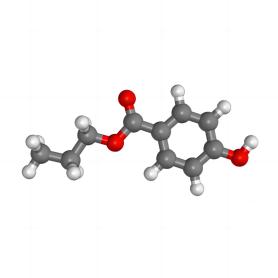
They're very effective in preventing the growth of fungi, bacteria, and yeast that could cause products to spoil, hence their prevalence in the beauty and personal care space. It's worth noting that parabens are naturally found in plants, in the form of p-hydroxybenzoic acid, or PHBA. It is a chemical that breaks down to become parabens and serves as a plant's own protection from infection.
However, additional research has concluded they are particularly problematic: Some studies determined a 100% concentration of parabens caused skin samples (meaning not intact skin on a person) to break down. However, these studies don't apply to the tiny amount (1% or less) of parabens typically used in cosmetics. In low amounts, parabens were not shown to harm skin.
Therefore, there is little reason to be concerned about their use. However, if you are using a large number of paraben-containing products, then you may be exposing your skin to higher-than-normal levels of the ingredient. This may slightly increase the risk of irritation.
One of the biggest reasons for the onslaught of paraben-free products in recent years stems from concerns that parabens mimic estrogen and can act as potential endocrine disruptors. But actually various studies have shown that certain parabens don't have any estrogenic activity.
In fact, some phytoestrogens can be up to 10,000 times more potent than parabens. Some effects or activity that mimics estrogen have been associated with parabens in vitro, but this activity has been noted as very weak, and there are no established reports of human cases in which parabens have elicited an estrogen-mediated adverse event.
As far as propylparabens specifically are concerned, these have even less of an effect on estrogen because of their shorter chemical chain. And in other countries, where cosmetics are considerably more closely regulated by the government—including in the EU, Japan, Australia, and Canada—safe levels of parabens have been established and approved.
Additional established side effects of propylparabens include skin, eye, and throat and mouth irritation, as well as allergic skin reactions. However, specialists have been quick to point out that these were rare, that in fact, as we mentioned at the beginning of the passage, parabens are commonly used as preservatives because of their gentle and non-sensitizing profile.
- Related articles
- Related Qustion
- Propylparaben: A Comprehensive Overview for Chemical Professionals Nov 5, 2024
The widespread application of Propylparaben as a preservative in the cosmetics, pharmaceutical, and food industries has attracted great attention.
- Propylparaben: A Common Antimicrobial and Preservative Chemical Found in Personal Care Products and Food Dec 20, 2023
Propylparaben, a paraben compound, is widely used for its antimicrobial and preservative properties in various consumer products. The majority of it is excreted as non-specific metabolites.
2,2-Bis(3,4-dimethylphenyl)hexafluoropropane is the intermediate of synthetic materials.....
Nov 28,2022Chemical MaterialsAvobenzone is a dibenzoylmethane derivative and is a chemical substance that is used in sunscreen products.....
Nov 29,2022Catalyst and AuxiliaryPropylparaben
94-13-3You may like
- Propylparaben
-
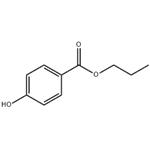
- 2025-12-15
- CAS:94-13-3
- Min. Order:
- Purity: 0.99
- Supply Ability:
- Propylparaben
-
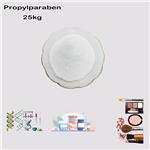
- $0.00 / 1kg
- 2025-12-15
- CAS:94-13-3
- Min. Order: 1kg
- Purity: 98.8%
- Supply Ability: 1000kg
- Propylparaben
-

- $0.00 / 25Kg/Drum
- 2025-12-15
- CAS:94-13-3
- Min. Order: 1KG
- Purity: 99%
- Supply Ability: 500mt





